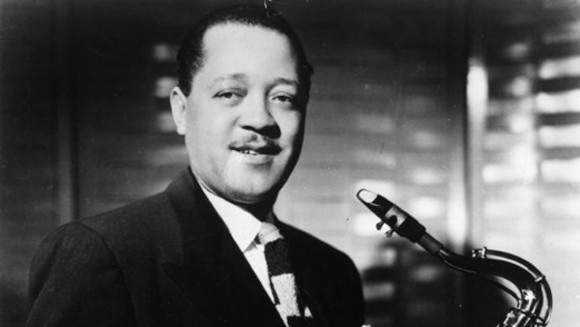
Lester Willis Young was a famous jazz saxophonist born in Woodville, Mississippi on August 27, 1909. He belonged to a musically accomplished family. His father was a teacher who taught Young to play the trumpet, violin, drums and the saxophone, and his brother was a drummer. The family relocated to Louisiana and then Minnesota when Lester was very young. The family had their own musical band known as the “Young Family Band” and Lester performed with them until the age of 18. He left the band when they were touring in the South, because of his deep dissatisfaction with the Jim Crow segregation laws in effect there. Young eventually settled in Kansas City in 1933, where he began performing with a number of small time bands. It was here that he met Count Basie, who was a prominent jazz composer and bandleader.
Young became a full time member of Basie’s orchestra and fit in well with their relaxed style of playing. He temporarily left the band to join Fletcher Henderson’s orchestra and then the Andy Kirk band, before rejoining Basie’s band. He was featured on several of their recordings such as “The Kansas City Sessions” and a number of recordings in which he played the clarinet which also featured the famous jazz singer Billie Holiday, who gave Young the nickname of “Pres” (which was short for President). Young stopped playing the clarinet in 1939, when his instrument was stolen and did not take it up again until 1957, when he was gifted one by the jazz producer Norman Granz who urged him to take it up again.
Lester Young left Basie’s band again in 1940 after he refused to play with them in a performance held on December 13, 1940 due to superstitious reasons. After leaving the band, he made a number of recordings with his own band which included his brother Lee Young as the drummer, and featured Billie Holiday and Nat King Cole. He rejoined Basie’s orchestra for 10 months in 1943 and was then drafted into the army during World War II. He was eventually Court martialed when he was found in possession of marijuana and alcohol. He was placed in detention for a year and was dishonorably discharged from the army in 1945.
After his time in the army, Young returned to the music scene with Norman Granz’s band. He toured with them extensively over the next 12 years and performed at prestigious venues such as the concert at Carnegie Hall. He also recorded several albums with them and was featured on recordings by Aladdin Records and Savoy. During the 1950s, the quality of his performance declined considerably as he became more addicted to alcohol and marijuana. This led him to have a nervous breakdown in 1955 for which he was hospitalized. After recovering, he reunited with Granz and recorded two more albums with him. He also played gigs with the Count Basie orchestra from time to time.
One of his last and most memorable performances was with Billie Holiday, among others, in a televised performance for CBS in 1957. Both Holiday and Young were near the end of their careers, and both gave exceptional performances. Lester Young died on March 15, 1959 at the age of 49, succumbing to a long battle with alcoholism. His work inspired the coming generation of jazz musicians and he is widely regarded as one of the most influential and talented saxophonists of all time.
